The Next Big Thing in Employee Survey Software

According to the Harvard Business Review (HBR), employee surveys are incredibly useful when an organization requires insights on employee performance and shortcomings in operations – when these surveys are designed correctly. Surveys that ask the wrong questions, in the wrong way, could inadvertently obscure serious issues. And in some cases, employees might be suspicious of the motives behind surveys and perhaps not answer truthfully.
Improving employee survey feedback by improving question construction
HBR identified 16 guidelines to assist companies to improve their workplace surveys across five main domains – content, format, language, measurement, and administration. At the risk of becoming too technical and long-winded, we have extracted three of their guidelines that would be useful to consider for quick, short feedback surveys (see the full list here):
• Ask questions about observable behavior rather than thoughts or perceived motives, because the results of opinion-based questions are too easily disputed due to potentially biased responses.
• Further to the above point, it is imperative to include question items that can be independently verified to improve the reliability of employee feedback. While qualitative questions about employees’ opinions can be valuable and should not be discounted, surveys that are interested in facts instead of opinions are best served by asking verifiable questions.
• Avoid merging two disconnected topics into one question. When attempting to gain an understanding of two different, yet related topics, we tend to ask double-barreled questions. An example would be: How satisfied are you with your pay and job conditions? This question attempts to answer both how satisfied the respondent is with their pay AND how satisfied they are with their job conditions, yet prompts only a single response. If an answer is required on both questions, it’s best to split them to prompt relevant answers.
What we have learned from how employees react when being surveyed
After reviewing Officevibe’s research on how employees tend to respond to employee surveys, we were able to identify some of how survey responses could be improved:
Keep surveys brief and simple to complete
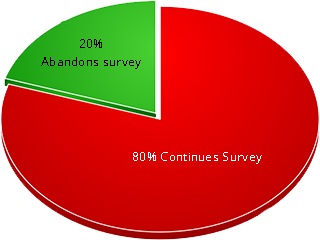
20% of employees tend to abandon a survey if it takes more than 7-8 minutes to complete.
If employees are asked to respond to a few short reviews throughout the year, it might yield better results than one large review all at once. Moreover, instead of making employees schedule a time to complete a survey at an office computer, they would be far more likely to respond if the survey is easily accessible. The Ezzely employee app allows managers to ask a few quick questions for employees to answer at the touch of a button, all on their mobile devices.
Improve response rates by explaining how survey results will be used, how employees will ultimately benefit from responding, and by demonstrating that employee feedback will be taken seriously by management
4 out of 5 employees believe that their managers would not act on the feedback they receive,
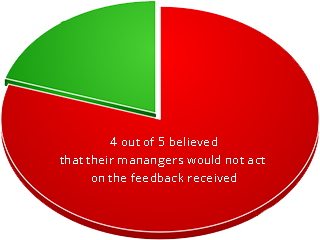
20% said their boss never followed up on raised concerns,
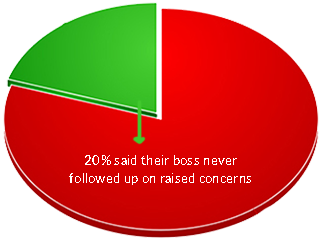
a quarter of employees believe that managers view surveys as a mere tick-box exercise,
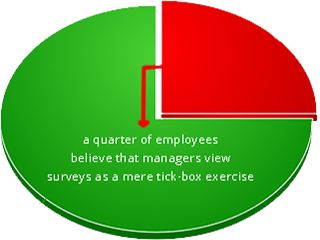
while 45% of employees believe that surveys served no purpose.
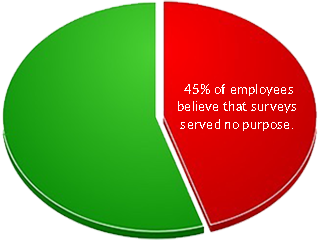
Managers could consider offering survey feedback or discussing outcomes with employees. Another awesome feature of the Ezzely app is that managers can communicate simply and, best of all, directly with employees using a newsfeed – communication between staff is greatly enhanced, everyone can stay up to date on work-related news and information, and management has a fantastic opportunity to enhance transparency, making employees more willing and comfortable to share their views in future.
Use caution when incentivizing participation
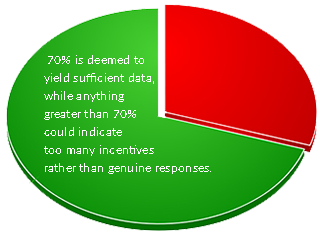
A response rate of approximately 70% is deemed to yield sufficient data, while anything greater than 70% could indicate too many incentives rather than genuine responses.
Anonymity might yield more truthful responses than incentivization will, while the greatest and most useful ‘incentive’ of all would be for employees to see that their feedback is taken seriously.
The greatest employee survey software in the world would mean nothing if it’s not used correctly. Get in touch with Ezzely today to learn how we could help you to keep a finger on the pulse of your business, improve employee engagement, and gain the best insight into the hearts and minds of your employees.
